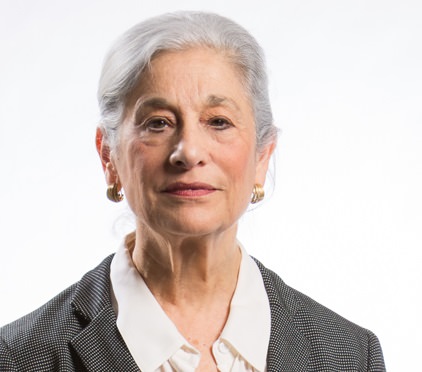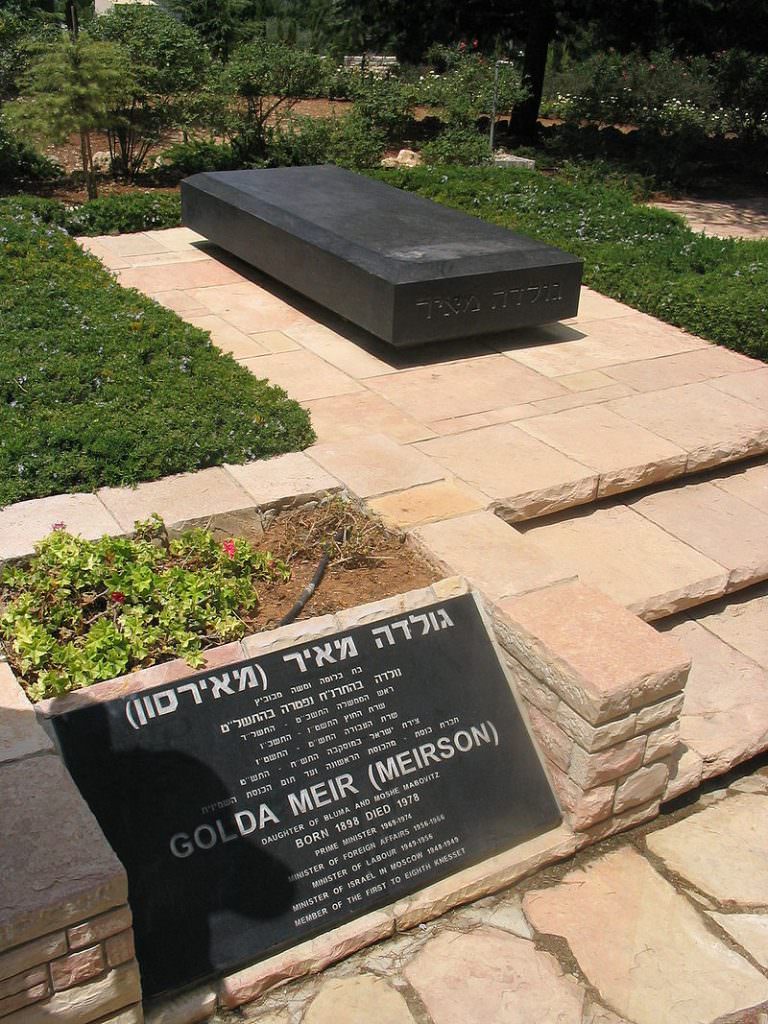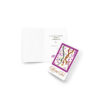NA’AMAT USA grant recipient discusses her forthcoming book on Golda Meir.
A distinguished professor of law at Boston University, Pnina Lahav was recently presented with a Research Fellowship Grant from the Milton & Mildred Rosen Foundation. The grant was made in honor of Celia Rosen and Helen Cohen, both lifetime members of NA’AMAT USA. Professor Lahav is the author of three books including Judgment in Jerusalem: Chief Justice Simon Agranat and the Zionist Century, winner of Israel’s Seltner Award and the Gratz College Centennial Book Award. She is currently working on a new biography, Golda Meir: Through the Gender Lens that she expects to publish in 2018.
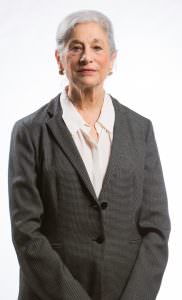
In November, Professor Lahav gave a talk on Golda Meir at the culminating event of NA’AMAT USA’s 90th Anniversary Celebration held at the American Jewish Archives and co-sponsored by the University of Cincinnati. She recently spoke further about the life and career of Golda Meir in an interview with NA’AMAT USA.
NA’AMAT USA: How did you come to write a biography of Golda Meir?
Pnina Lahav: I previously wrote a biography about the Israeli judge Simon Agranat. He was the John Marshall of Israel. What was interesting about this judge was that he was an American, born in Louisville, Kentucky. He was educated at the University of Chicago, then came to Palestine. One of the things I tried to show were his American values. He was a product of the Progressive Era. American values for law and justice played a part in his jurisprudence, his decisions.
NU: Golda Meir had a similar background.
PL: Exactly. In my biography I try to show the influence of American history, culture and values on her thinking and activities.
NU: Could you explain the subtitle of your book, Through the Gender Lens?
PL: There are many biographies of Golda. Some of them are very good, but most focus on her political career, particularly her prime minister-ship. They do not address the issue of her being a woman. People tell me that being a woman had nothing to do with Golda’s career. I think it had EVERYTHING to do with it. Golda herself said several times that she was not a feminist. I try to explain her complex and conflicted feelings in this matter.
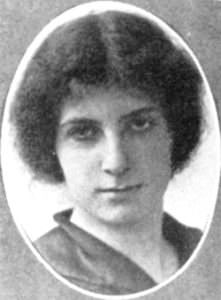
NU: Can you cite some examples of how her being a woman mattered?
PL: During the Suez War, she was Minister of Foreign Affairs. She was appointed minister for the purpose of supporting the war effort. During a visit to the United States, a reporter asked, “How do you feel as a woman Minister of Foreign Affairs?” She replied, “I feel like a Minister of Foreign Affairs.” She dropped the “woman.” But when plans to launch a war were made, she was ignored. Very soon after the war, she returned to the United States to conduct an intense struggle to get the Eisenhower Administration to assist Israel in keeping some of the territories it had conquered, and she understood that being a woman was an asset. People were interested in the unique phenomenon of a woman in power and she went along with it. She was interviewed by Life Magazine and for that story she agreed to be photographed with her grandchildren, pushing a baby carriage and preparing for a dinner party, doing things Americans expected a middle class woman to do. She wanted Americans to see her as a normal person. She understood that was an asset. She was never given the credit for her success in that diplomatic campaign.
NU: I recall an incident before the founding of Israel when she went to Jordan on a diplomatic mission disguised as an Arab.
PL: That’s right. She wore an Arab woman’s dress and went to see King Abdallah. And the King of Jordan was very unhappy talking with her, because he was a traditional man from a strict Muslim background.
NU: Did she use that to her advantage?
PL: Well, she was very tough with him, but basically it went nowhere. Ben Gurion trusted her more than most people. He knew that anything he entrusted her to do, she would do to the letter. She did not exercise discretion and did not improvise. Loyalty was something that she used to enter a man’s world.
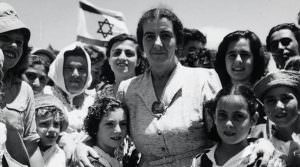
NU: Did she pay a cost for entering “a man’s world”?
PL: Well, as everyone knows, she neglected her children. She understood that it is very difficult to balance work and family, and she chose her career over motherhood. But it was something she felt very guilty about. Later, when she came into a position of power and felt more secure, she turned around and tried for tikkun, “repair.” And she did repair her relationship with her children. She devoted as much time as she could to them later in her career. However, during the crucial period of childhood, she was not there.
NU: What role did Pioneer Women play in her life?
PL: It was important to her. She knew many of the women who were the leaders of Pioneer Women before she came to the United States as an emissary. She knew some of them from her work with the Socialist Party during her teenage years. When she came to the United States in 1928, she re-bonded with them. She was grateful for their assistance and she used her connections with the organization to broaden her network and secure influence in the politics of American Jews.
NU: Did women’s issues remain important to her throughout her political career?
PL: Yes. She did a great deal to advance the cause of women when she was Minister of Labor. For example, she secured the right to maternity leave. In Israel, maternity leave is provided by the government and paid for not by the employer but by the taxpayer. Women in Israel think it is a natural right. They are surprised when they come to this country and find that it doesn’t exist. It was Golda who led the fight to legislate it.
She also passed Israel’s Social Security law. That was in 1954 when Israel was very poor and she overcame the resistance of the Minister of the Treasury. Everyone became eligible for Social Security, women included. That was a major achievement that made Israel a better place.
NU: How do you explain her impact on people?
PL: She had immense charm. She talked to you on your level. She was in favor of the little guy and she never forgot where she came from.
NU: How would she feel about the state of Israel today?
PL: She would be conflicted. I think she would be very happy that Israel is strong, a mini super power in the Middle East. It would give her comfort, pleasure and pride. I think she would be very sad to see how socialism and social rights have eroded in Israel, including the Histadrut (federation of labor), that was her baby.
NU: Was she disappointed at the end of her career?
PL: Yes, very disappointed. She felt like a failure. She felt responsible for the outcome of the Yom Kippur War.
NU: Do you agree with that?
PL: In a way, yes. I ask myself whether her deference to the generals came from a deep sense that she was less qualified. She did not serve in the military, she was not a man, she didn’t know enough about military matters. She trusted men. She trusted them in military affairs and they disappointed her…and not only her, they disappointed the country.
NU: What can we learn from the life of Golda Meir?
PL: First of all: the perennial factor of sexism. We have not solved that problem. People are skeptical of a woman as the head of government. That was true then and is true today. We have to understand that, internalize it and fight it. We should not turn a blind eye to sexism, as she has done.
NU: What advice might Golda have for the women of NA’AMAT USA?
PL: I think Golda would tell them to trust the power of their convictions and their ability to make a mark. Pioneer Women helped Israeli Women participate in nation building. They cared and they made a difference. They should continue their good work, in Israel as well as in the United States.

